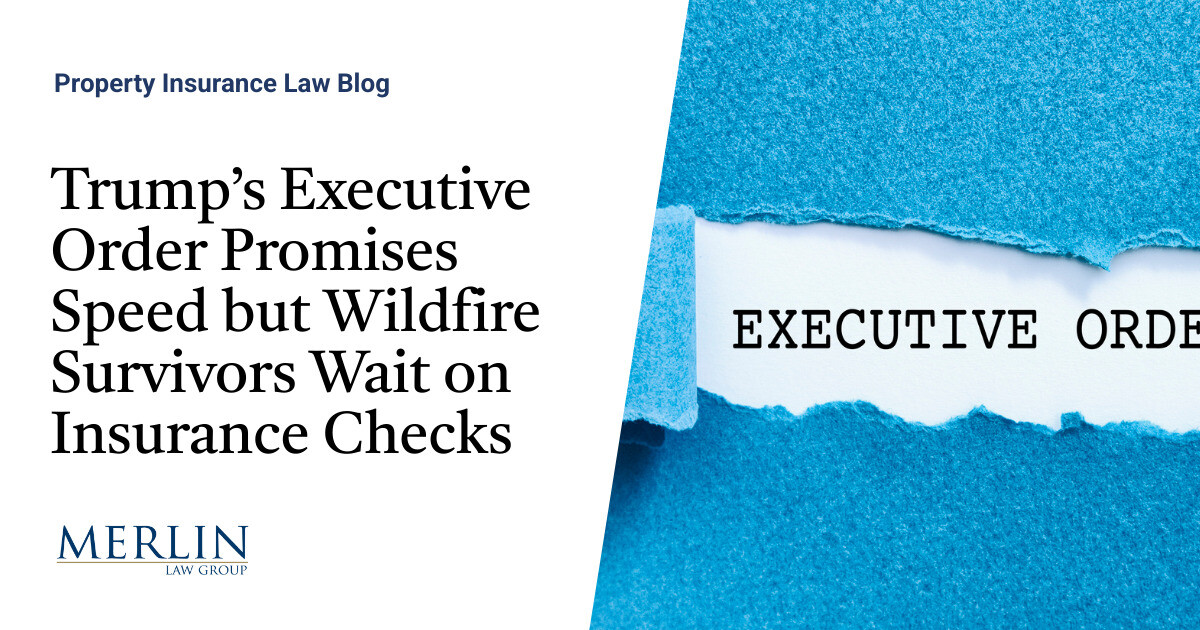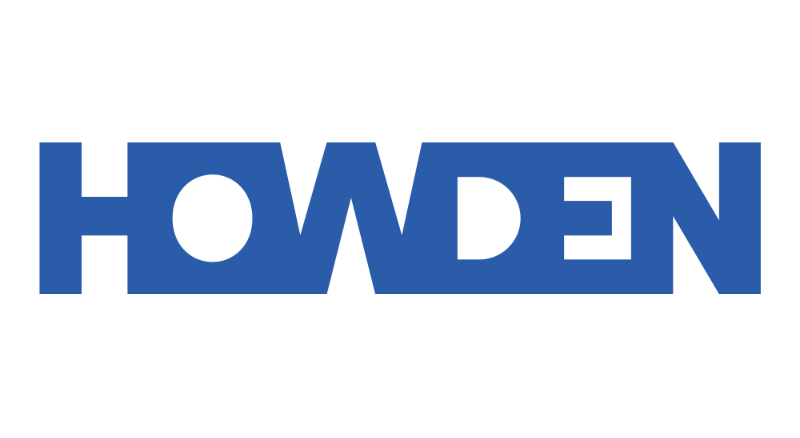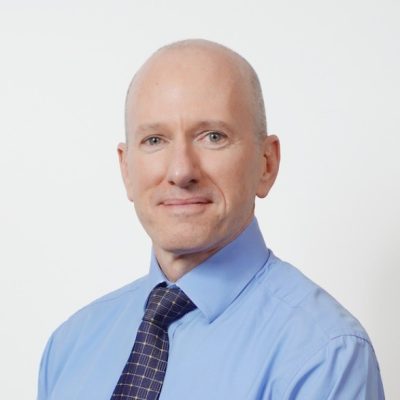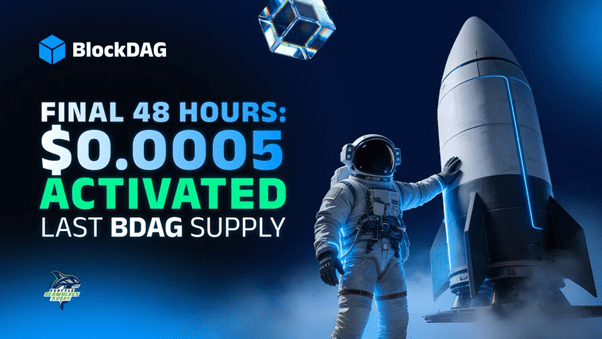As an advisor, you guide clients to do the right things with their money and mindset. And it’s no coincidence that the ones who listen have the most optimized wealth.
Imagine you applied this exact same expertise to become more influential in your market…
In this episode, Matt Halloran and Kirk Lowe flip the script. They show you how to look in the mirror and take your own advice as an advisor. Matt and Kirk have some fun sharing examples of commonly used financial adages that, when applied to running a business, will make massive shifts in your influence trajectory.
Matt and Kirk discuss:
- How to build marketing equity that creates Marketing Momentum over time
- How diversification in marketing creates greater value for your audience
- Every reason to work with a marketing specialist (vs. generalist)
- The dangers of falling behind on sharing your thought leadership and Return on Influence
- And more
Transcript:
[00:00:00] Matt Halloran: Welcome to the Top Advisor Marketing Podcast, brought to you by ProudMouth. I’m your host, Matt Halloran. Being your own loud is not new to marketing, but the mindset, strategies, and resources to help you get there are evolving faster than this industry is keeping up. It is time to find a new perspective on what works, why, and how to move your business forward.
[00:00:24] Listen as I interview guests to help you learn from them how to be your own loud. Let’s get to the show.
[00:00:34] Hello and welcome to another Top Advisor Marketing Podcast. I’m your host, Matt Halloran. I’ve got Kirk here. It’s been a while since you and I podcasted, brother.
[00:00:43] Kirk Lowe: It has been. You know why?
[00:00:45] Matt Halloran: A really long time.
[00:00:46] Kirk Lowe: Because we’re busy building a company and we don’t want to be a normal, regular company. We want to try to be great, and that’s a lot of work.
[00:00:56] Matt Halloran: Yeah.
[00:00:57] Kirk Lowe: But as influence –
[00:00:58] Matt Halloran: But we’ve carved out some time.
[00:00:59] Kirk Lowe: [00:01:00] I know, but as influence experts, we are really dedicated going forward to setting a wonderful example and building actions and habits that do that. Having said that, even though I haven’t been on here, we’ve been rolling like crazy. So, we didn’t get away from it.
[00:01:19] And luckily, we’ve got two of us, but we found a way. And we’re going to get back to it here. So, what are we talking about today? We’ve got some fun stuff today.
[00:01:28] Matt Halloran: Yeah, we got some fun stuff, so this could be fun. This isn’t going to feel like we’re, you know, doing a podcast because this is the sort of stuff that you and I talk about all the time when nobody else is really paying any attention.
[00:01:38] And we’re going to talk today about the financial adages, colloquialisms, if you will, that financial advisors use on a regular basis, and how applicable those are. What you, as an advisor, say to your clients and the things that drive you crazy that you have to say to your clients are so similar to the sort of stuff that we say in the world of marketing. And we’re going to [00:02:00] address each of those today.
[00:02:01] Kirk Lowe: Absolutely. So, I’ll go first. And before I go, I want to say, look, we’re having fun with this, but we’re not really pointing fingers. Everybody has hypocrisies in their life and their business, and we just shared one of ours, right?
[00:02:16] We’re going to have some fun with this, but these are serious things and they’re true. And our job here…one of our big missions and purposes for Matt and me is to help people understand what marketing should be, what it really means. And if you own a business, until you really understand the purpose of marketing, like you really understand it, you’re never going to be that successful at it. And we have learned that. We’re trying to share that wisdom, those experiences with everybody. And this should help us. This will give you an interesting perspective on how we think and how you think, because if you’re a financial professional, you’ve been here, done what we’re [00:03:00] about to do with you.
[00:03:02] We’re kind of calling you out on you doing it for your audience and being wonderful professionals that you are. We’re going to do the same thing. So, the first one is…This is one of the most commonly used phrases in financial services. It gets worldwide coverage, probably everyday, a couple of hundred times. And it’s the philosophy of buy-and-hold investing or investing for the long term.
[00:03:28] Matt Halloran: It just amazes me, Kirk, that advisors, probably now that they’re hearing that, are like, “Dude, I say that in every client meeting.” Right? We say that in every client meeting also because we believe, and we haven’t really branded this, but you and I were talking about this a couple of days ago.
[00:03:44] Slow marketing. Right? Really great marketing starts slow and gains momentum over time. Just like their investment portfolios. It’s the power of compound interest. That’s what we are talking about here.
[00:03:58] Kirk Lowe: Slow sounds…It doesn’t [00:04:00] sound great. But slow cooking does. Yeah. Right? Healthy, at least. But what does sound better is compound marketing, but our favorite is Momentum Marketing. Having said that, not everybody understands momentum marketing, but momentum marketing is what you’re really trying to do. So, we can call it buy-and-hold marketing or compound marketing. Our preference is momentum marketing, and the idea with momentum marketing is that when you think of marketing assets or marketing equity, when you’re doing marketing activities, are you building marketing assets and equity?
[00:04:45] So when you build a website, that becomes an asset that has equity. It has value in your business because the day after you put it up, it has value on the next day or the day after that, right? [00:05:00] So, geez, I’m not used to my mic in front of me. I’ve bumped it several times.
[00:05:03] Matt Halloran: You’re flailing with your hands, brother. Keep going.
[00:05:06] Kirk Lowe: Yeah, I know. We’re videoing this as well. For people who are just hearing it on audio, hopefully it works out good. I combed my hair today, so I look pretty smart.
[00:05:16] Matt Halloran: And so, the idea here, and you and I say this a lot, is that the content that is created has value itself.
[00:05:23] It’s like art, right? And the same thing that you’re doing, building a really great portfolio that has value over time. The content that you create, the website, the video, the audio, the blogs, the social media content, that cumulatively gets more valuable over time.
[00:05:40] Kirk Lowe: Yes, a hundred percent. So, what we want to do is, if you think about momentum marketing or the idea of compounding, is that when you build something, it’s worth something. And then you build on top of that.
[00:05:50] Now, it’s worth more. So, if you think about podcasting, as an example, or doing video, when you have that video up there, it’s out in the marketplace. It’s worth something [00:06:00] because it’s still valuable. And when you get the second piece of content and third, the 10th, 20th, 50th, the hundredth, in our case, the 400th or 500th, whatever, it’s worth a lot.
[00:06:11] There’s a ton of credibility in the fact that Matt Halloran has done a lot of podcasts, as has ProudMouth. It’s a big deal. That marketing has equity. It has lasting value. If you were to do other types of marketing, more push-oriented marketing, because the podcast is what we call pull marketing.
[00:06:34] Push marketing sometimes doesn’t have lasting value. If it’s all you’re doing when you’re marketing, you don’t…you’re not building any marketing equity, so it’s hard to create momentum, but momentum is what really gets you to the destination you want – from an influencer standpoint, that is having this celebrity or at least an authority-level influence and potentially celebrity-level of [00:07:00] influence.
[00:07:00] We are not talking about celebrities that you see in the media and, you know, fame and fortune, that kind of stuff. We’re talking about celebrities in your niche, right? There are plenty of celebrity influencers in financial services. So, those are the ones that, you know, you can be that for your audience in your industry, in your niche, in your geographic region.
[00:07:25] So, that’s the first one. Hopefully that makes sense. You want to take the next one?
[00:07:30] Matt Halloran: So, the next one here is: Being diversified is the best way to be successful over the long-term. So, why don’t you take that one?
[00:07:37] Kirk Lowe: There are different perspectives on this. The first perspective is that diversification depends on who your audience is.
[00:07:46] And so, you could have people in the same niche who prefer different media, so you want to diversify so that you give them what they want. So, that’s one of the ways. And, as an example, [00:08:00] if you’re doing a podcast, why aren’t you doing video? If you’re writing a blog, why aren’t you turning that into a podcast?
[00:08:05] If you’re doing a podcast, why aren’t you turning that into a blog? If you’re doing a podcast, why aren’t you cutting that up into little pieces of content for social media? So, if you’re doing a podcast, why aren’t you doing a webinar? And before you do a webinar, why aren’t you sending them your podcast so they can get to know you? And why aren’t you talking about webinars and social media?
[00:08:26] Why aren’t you talking about your podcast and social media? And then, why aren’t you actually announcing your podcast in your webinar after? Go sign up. Like, there are so many opportunities. Those are just a couple of ideas.
[00:09:02] So, think about diversification in your marketing because I would say most advisors have some diversification. What do you think are the most common things an advisor would have? Everybody would have a website. They might have a blog, but I would say 95, maybe even more, well, let’s go with 99%.
[00:09:24] 99% do not have their own blog, but they probably have articles that somebody else wrote. Everybody, almost everybody, would have social media. Maybe not everybody. Maybe 80-90%? And what are some other things that everybody would have?
[00:09:48] Matt Halloran: Well, first off, 80-90% don’t have social media. I’m so glad of your optimism there, my friend. But that’s not the case. You know, most of them have done webinars or seminars. Right? And almost everybody’s shooting video. And I mean, that’s [00:10:00] very, very pervasive right now because everybody from stages at conferences are talking about the power of video.
[00:10:05] But they’re doing it poorly. Right? And actually, you know what? That goes into our next point that all of you advisors say, so I’m going to bridge this gap very quickly, which is, “You know what? You can hire a discount broker, Mr. And Mrs. Client, but you’re really going to get what you pay for. You’re not going to get the advice that you need with a specialist who only focuses and works up with people like you.”
[00:10:28] Again, that’s niche focused. But again, Kirk, you can see how that parlay immediately into, you know, “Yes, you can just grab your phone and shoot a video.” Right? Oh my God. When you get good lighting and you know what you’re going to talk about in your practice and you know the distance from the camera and you’ve got really great audio, that changes the quality of things.
[00:10:46] So let’s talk about “You get what you pay for when it comes to marketing.”
[00:10:50] Kirk Lowe: Yeah. I mean, if you are an expert in your field, right? Advisors preach this all the time that they’ve spent a lot [00:11:00] of time in their profession. Everybody thinks they know what a good investment is, how to pick a stock.
[00:11:07] People are scared about, you know, in and out of the market, but they certainly…There’s so much information about what you’re doing, just like there is with marketing. It’s easy to feel like you have some sense and there’s people who would talk to you about it like it’s so simple, it’s so easy to pick stocks and run your own portfolio.
[00:11:26] Just, you know, listen to me here on Twitter every day. And the reality is…You’ve got to find people that have been doing this. It’s all they do. They know it. And when you’re thinking about marketing, look for those people too. And look for people who are genuine and authentic, that aren’t over-promising.
[00:11:53] I think it’s a really big thing. If you’ve got a company who’s promising a lot, [00:12:00] and yes, you want the things that they’re promising, but are they actually capable of delivering those and are those the things that you really need from them in the first place? What’s really interesting over the years is that anytime we use the word “lead generation” in an article, it gets so many more hits.
[00:12:21] And to be honest, for the most part, we’ve avoided that over the years because we don’t want to. But we’ve integrated it into our stuff. We talk about it a little bit differently. We talk about return on influence more than we do about return on investment because there’s so many different ways to win at thought leadership sharing.
[00:12:43] But, no doubt, when you’re looking for somebody, find somebody who has grounded advice. They’ve been doing this for a long time. They understand how to work around the intricacies of your profession. And Matt, actually, you [00:13:00] recorded a great little video today that had three points. They may actually be really pertinent for you to share right now. Almost like a redo or we could just play that video. Anyway –
[00:13:10] Matt Halloran: Well, I’ll make it shorter than the video, but the idea is, you know, many of you think that you know what you want to do in the world of marketing, but you just don’t have the experience or the expertise. And I just want to put that into context.
[00:13:27] So many of you say, I’ve helped thousands of people retire. You only get to retire once. We’ve done 7,000 episodes for advisors and a quarter of a million social media posts. When we say, “Hey, don’t start with four podcasts a month, you’re going to burn out really fast.” Guess what? We know what we’re talking about.
[00:13:47] You know, the second one, you know, has all to do with sponsorship. You are the sponsor of your show. [00:14:00] It’s brought to you by your financial services firm. Don’t cheap out and want to try to get, you know, defer the cost. And then, the last thing is experience, right?
[00:14:12] The fact that you have to have somebody in your corner who’s going to help you get good behind the microphone, and if you don’t have that…
[00:14:21] Kirk Lowe: Yeah. Versus just helping you push something out. Yeah. That would be not much different than…What’s a good example or analogy from an advisor to a client perspective there?
[00:14:34] Maybe giving them access? You know, tell them what to do, but not access to software or vice versa. Stuff like that?
[00:14:41] Matt Halloran: Yeah, absolutely. You know, there are a lot of things like that, but, you know, just being able to, you know…Overarching, make a statement about a specific product or service, but never providing them with any access to further education or the execution of being able to do that stuff.
[00:14:54] And I think that’s what financial advisors get frustrated with all the time, Kirk. [00:15:00] There are all of these social media we call “finfluencers.” who are out there chirping in the ears of your clients, and you have to rise above that noise. If you don’t rise above that noise, you’re going to get your lunch eaten buy some schmuck on TikTok.
[00:15:12] Kirk Lowe: We said we were going to be nice about “finfluencers.”
[00:15:15] Matt Halloran: Yeah, I’m sorry. Yeah. I will.
[00:15:18] Kirk Lowe: They’re not. They could be Schmucks, but they could be well-intentioned and very intelligent people with a lot of experience who’ve had bad experiences potentially with financial professionals, trying to do their own thing.
[00:15:35] Or they’re talking about…a lot of times it’s a perspective. So, their audiences are people very similar to them and they’ve had similar experiences, so they’re helping them, you know, navigate that. So, sometimes, I think the intentions are different, and sometimes schmucky, sometimes, you know, purposeful, meaningful contributions to society.
[00:15:58] But the [00:16:00] reality is they are not, you know, the ones who are typically doing this are not regulated, which isn’t necessarily a bad thing because I know lots of people that we know would prefer to do a podcast without that compliance, but that compliance is in your best interest. So, I think do it within the context of your business model.
[00:16:23] Unless you’ve been told you can’t even do thought leadership, which is ouch. You know, it’s going to be very difficult.
[00:16:31] Matt Halloran: Which is when you move. It’s just that. Yeah, at some point, you’re going to leave, which actually really leads us to another point here, which is actually my favorite point because I’ve heard you say this many times on this show, which is, “Get into the market and invest now.”
[00:16:49] So, this is what advisors say to their clients. Get into the market and invest now. The best time to plant a tree or invest was 20 years ago. The next best time is today. So, take that one.
[00:16:59] Kirk Lowe: How many [00:17:00] people put off doing something thinking they’ll just catch up or they’ll start it? I am starting to get worried for advisors who haven’t even really considered thought leadership or haven’t started it.
[00:17:12] It doesn’t mean you need to hire a company to run a podcast, you know, twice a month, like ProudMouth. But you have to be exercising your thought leadership muscle. You have to get comfortable doing media. You have to set actions and habits to get that, to record or document that thought leadership. And then you have to get practiced at packaging and sharing it.
[00:17:38] And if you’re not starting to do that and experience that and understand it, you’re missing all the opportunities to get the ROI or the return on influence, which are so powerful in a business. And Matt, do you want to go through the return on influence? I know you do fairly often, but it’s worth repeating. A hundred percent.
[00:17:57] Matt Halloran: Well, thank you for that because I think [00:18:00] you’re right. And just before I jump into that, the idea –
[00:18:03] Kirk Lowe: You think I’m right?
[00:18:05] Matt Halloran: Well, I do. I think you’re right a lot, dude. Cheers to that, brother.
[00:18:09] Kirk Lowe: I think you came up with the return on influence. I mean, we may have come up with the term, but I think you’re the one who ultimately decided on the five things that you talk about.
[00:18:17] Matt Halloran: Oh, good for me. I don’t remember where a lot of this stuff comes from.
[00:18:22] Kirk Lowe: You’re a pretty smart fellow.
[00:18:24] Matt Halloran: Alright, so return on influence. But very quickly, I want to just touch on what you were talking about. The best time to start influence marketing was 20 years ago.
[00:18:32] You know, those advisors or those people who have 50 videos, 100 podcasts, and really robust social media, I think they are so far ahead of you because they have so much more social proof. But here are, real quick, the five ROIs – the five returns on influence. Number one is the best client communication tool you’re ever going to have, right? This is the best way for you to build influence with your clients and stay top of mind when it’s convenient.
[00:18:54] That also means that the content that you create has intrinsic value, right? And [00:19:00] so, that’s one of the big returns on the investment. The second one, it’s the easiest thing to refer to. In fact, Bill Cates, when he was on this show, and I talk to him often, one of the things that he consistently says to me is, “Matt, it’s so much easier to refer somebody to do a podcast than to call my guy.”
[00:19:16] Now, luckily, he has an entire program built around referrals, but part of that referral system is having thought leadership that you can drive people to. So, that’s number two. Number three, greater share of wallet, right? So, it’s easier to sell an existing client a new product than it is to get a new client, right?
[00:19:32] And for some of you, you have the misconception that you have a hundred percent of your client assets. You’re wrong. 75% of you don’t. That’s actually just a statistical fact that has been played out repeatedly over studies with the general public. You have the opportunity to bring new ideas.
[00:19:48] And my favorite one is this. I’m going to digress just for a quick moment. One of our clients brought an estate planning attorney on and he asked the estate planning attorney. He said, “Jane, do you have a desk drawer [00:20:00] full of trusts that have been signed and you’ve been paid on, but have never been funded?”
[00:20:03] And Jane was like, “Yeah, totally. I got a lot of those.” And he’s like, “Well, what do you suggest that our listeners do?” And she said, “Well, they should probably fund the trusts.” And after that podcast went out, our advisor got phone call after phone call after phone calls saying, “Hey, I don’t know if you know this, but I’ve got $250,000 sitting in a bank CD that I was going to use to fund this trust. Can you help me put that to work?”
[00:20:24] Oh my God, that’s freaking printing money. All right, so that’s number three. Number four, centers of influence. And this is my favorite one, hands down. We have grown our entire business with this model. You bring on people who have greater audiences than you that are within your sphere of influence, who can potentially refer to your business and you get them to come on your show.
[00:20:45] Now, I want to say this, and this is very true and very clear. You bring on a really high-end CPA on your marketing podcast, your advisor podcast, that’s basically them endorsing you as an advisor, because why would they be on your show if they didn’t think that [00:21:00] you were worthy of being a host of them and asking them questions?
[00:21:04] So, you are getting basically the two words that you all hate, endorsement and testimonial, from a third party. Right? Just because they’re on your show. And then they share the show with their network. We call it concentric circles of influence. But the last one is what all of you want to know about, which is net new assets.
[00:21:21] If you do all of those things that we’re talking about, use it as a referral source, create great content, build relationships with centers of influence, sell new products to existing clients, they are going to refer you to new business. And so those are the five ROIs. I hope that didn’t take that long.
[00:21:38] Kirk Lowe: Yeah, it doesn’t…You said something I want to make sure listeners understand. You can look for guests to be on your show that have larger audiences, but you can get guests that have smaller audiences but engaged audiences who are ideal audiences. And sometimes, you can just find people who add a lot of value [00:22:00] to what your clients need to hear, and your audience needs to hear and not even worry about it.
[00:22:04] And that happens. And we do that all the time. Sometimes, we have somebody on. It might not be all perfect as a guest and checking all the boxes. But they add a lot of value. We bring them on because we think our audience is going to want to hear about that. And sometimes, it even stretches a little bit outside marketing, and we just feel it’s really good stuff and they’re good people and we bring them on.
[00:22:31] Matt Halloran: All right, we got time for a couple more. Are you ready? So, the next one is…Plan, plan, plan. Stick to the plan.
[00:22:38] Kirk Lowe: I’ve seen stats. I’m not going to quote them, but I think it’s around less than 25-30%. If I remember correctly, are stats on how many financial advisors have business plans?
[00:22:51] Matt Halloran: Business plans. Not marketing plans, just business plans.
[00:22:53] Kirk Lowe: Yeah, well, they really are…What’s really the difference?
[00:22:57] Matt Halloran: I don’t know. Joe Lucas would argue with you on that, brother. [00:23:00] Well, but marketing is a different component of business.
[00:23:02] Kirk Lowe: A business plan would talk about your business model and your services, but they’re all interconnected.
[00:23:10] But let’s just say a marketing plan. How many financial advisors have marketing plans? Let’s just say 25 is the high end. It is not enough. You wouldn’t advocate for a client not having a financial plan. Although we all know financial professionals who don’t care whether you have a financial plan because they’re selling products.
[00:23:33] This is the same thing here. Don’t get sold a product, right? One marketing tactic that isn’t part of a bigger plan, that doesn’t consider it. And, look, a plan doesn’t have to be a 20-page Google doc.
[00:24:22] It can be a one-page summation. It could be a mind map. Just understand what you’re doing. Communicate that to your team or the marketing people that you’re working with, or even just for yourself as a reminder. You don’t have to refer to it every day, but you definitely need to have a journey, like an end game, and where you’re going and how you’re going to get there, and then how long it’s going to take, how much it’s going to cost, what your expectations are, how things are going to work together.
[00:24:55] You know, make sure you got…You know, synergy is one of our rocket boosters, which is one of those seven [00:25:00] areas that we talk about. Have a synergy. All kinds of neat things. But have a plan. It doesn’t take that long to do, but make sure you have one. It’s critical.
[00:25:12] Matt Halloran: I believe that you should have a 12-to-24 month marketing plan somewhere written by somebody, if not you.
[00:25:19] And we actually have some great strategic partners in our PodRocket Influence Academy who can help you create a really, really clear and succinct marketing plan. And we’ve got some great courses there. But, okay. So, the last one that we’re going to finish with today, which is my absolute favorite, is…Don’t get investment advice from your uncle.
[00:25:36] And you and I hear this all the time. All the time. I mean, not “Don’t get investment advice from your uncle” but elaborate on that, will you?
[00:25:45] Kirk Lowe: Well, it’s happened a lot. I mean, it’s happened for…Just think about how many people were told social media is the holy grail of marketing for financial services.
[00:25:57] Just think about how many people were told seminar marketing[00:26:00] was the holy grail. Just think about how many people were told about a book. I remember this audio CD thing. I remember those. Many years ago, it came in a little package. Oh, that was the holy grail dude.
[00:26:13] Matt Halloran: You used to be able to also send DVDs to your clients.
[00:26:16] Do you remember when it was a big deal that you would professionally shoot a video and physically send DVDs to your clients?
[00:26:23] Kirk Lowe: There are people that say podcasting is. It’s not the Holy Grail. It is not the Holy Grail. Video is a big one right now. Everybody wants to be on video. And you should be on video, but if you’re just doing video and you haven’t got all this other stuff figured out, right?
[00:26:40] No diversification of marketing, video is going to be tough. From time to time, we have come across somebody who has done a whole bunch of podcasts who hasn’t pushed them out to the world, hasn’t spent any money sharing them, distributing, and talking [00:27:00] about their social media. Now, some of those might have high-net-worth or ultra-high-net-worth audiences, and they don’t need to put it out on Facebook.
[00:27:11] They want to send them, you know, privately. That’s okay. But for most of you, 99.9%, you need to find the diversification, the synergy, and you need to have all kinds of marketing in place. And that’s, you know, really the way it goes. What do you think?
[00:27:29] Matt Halloran: It’s interesting that you took it that way because when we talked about this ahead of time, that “Don’t get investment advice from your uncle.” Well, maybe I just took it in a very different direction. So, I’m going to take that direction and we’re going to wrap up. So, what we hear all the time from people is, “Oh, I know a guy who has a band who has some audio equipment. They’re going to run my podcast for me. Or my nephew has got 300,000 followers on Instagram. I’m just going to hire her.”
[00:27:57] They’re not experts. They’re not [00:28:00] professionals. They’re in a…it’s like, “Oh, well, I’m just going to take investment advice from my CPA.”
[00:28:06] Kirk Lowe: I know how to get you connections on Instagram. That’s all you need. Let me just build up your following. Yeah. Follow what? You don’t have any thought leadership. You’re not doing any videos.
[00:28:17] You don’t have a social media person to consistently put it out. Like, what’s the point of having an audience? And where did you build that audience?
[00:28:26] Matt Halloran: And is that audience even the right people that you want? You don’t want to have your nephew’s Instagram following because they’re all probably gen Z, right?
[00:28:36] I mean, they’re probably not your ideal client profile. Anyway, I just wanted to go ahead…
[00:28:40] Kirk Lowe: Another really tricky one is SEO. I’ve heard so many people come and talk about SEO. And the reality is…SEO can work well for you, but the amount of dedication is significant. Anybody says they can do it quickly is lying to you.
[00:29:00] It is a lot of work. You have to have a lot of authentic content. You have to have content that’s being searched. Some people are specialists, and the things that they need people to look for to find them, they’re not looking for, they don’t know, they don’t understand your sophistication. They don’t understand the problems.
[00:29:20] They’re looking for simpler stuff. Now, if you’re doing awareness campaigns and you’re generating and you’re educating people so that they can start looking for that stuff, that can be good. But SEO only works when people are searching for the stuff that you’re selling or talking about. And if that doesn’t exist, SEO is not worth doing.
[00:29:43] You could do it for some basic reasons. Have a Google My Business. Something like that so people can find you and you’ve got some simple boxes checked. But going after SEO when it’s not right for you and your audience and expertise is a huge [00:30:00] waste of money. And how many people have been duped into that?
[00:30:02] Matt Halloran: But that’s the thing, Kirk. That’s what’s so frustrating to us. It’s people who truly want to help advisors stop being the best kept secret in their area. Listen, we’re sorry that it’s not faster. Look, we already are influencing accelerators. We’re helping you accelerate it as fast as humanly possible, and with a proven system and technique.
[00:30:22] Listen, if we could get you the results in six months, man, Kirk and I would’ve signed up for that forever. We’d be richer than astronauts, but that’s not reality.
[00:30:30] Kirk Lowe: You know what’s really interesting though? The longer you do this, the more power you have to accelerate. So, one of the things that we are looking at…I don’t know if I should be talking about this or not.
[00:30:46] Matt Halloran: Well, hold on. So, let’s just pause because we’re running up on time. So, is this our next episode where you’re going?
[00:30:53] Kirk Lowe: Who cares about this time? Where’s this?
[00:30:53] Matt Halloran: It’s 27 minutes, dude. Don’t make me have to punch you. I’m going to punch you in the throat.
[00:30:57] Kirk Lowe: Okay, look, if our podcast is good enough and they [00:31:00] get off the train because the standard commute or the car is 27 minutes or a walk –
[00:31:05] Matt Halloran: No, they don’t play –
[00:31:07] Kirk Lowe: They’re going to keep listening.
[00:31:09] Matt Halloran: No, they don’t. And you’re the only weird person in the world who does that anymore. I know you listen –
[00:31:13] Kirk Lowe: Well, how many people have two-hour podcasts and have huge numbers? People want to listen to it –
[00:31:18] Matt Halloran: Because those people who listen don’t have freaking jobs.
[00:31:20] Kirk Lowe: They’re way more interesting than me. I get that.
[00:31:22] Matt Halloran: Our people have jobs. Here’s the best part. You and I need to do this more often, so I’m going to stop you there and I’m going to make sure that we go ahead and whatever you’re going with in your brain, we’re going to have it as our next episode. Fair?
[00:31:33] You need to write it down because you’re going to freaking forget though. So, we need to write it down.
[00:31:36] Kirk Lowe: Basically, there’s a certain point where you have enough content, enough assets, that you can start running campaigns to drive awareness fairly inexpensively and very efficiently.
[00:31:48] Matt Halloran: And that’s escape velocity, right?
[00:31:50] Kirk Lowe: But you have to have done the work, right? Do the work. Where did I hear that today? I was listening to Lazetta Rainey Braxton’s podcast. [00:32:00] Oh, it was actually Jaq. You know Jacqueline Campbell? And I came across it on social media. What a crazy thing. I follow people there. I look for who they talk about.
[00:32:13] And Lazetta, that’s a huge mantra of hers. Do the work. She has a different perspective on what “Do the work” means coming from her worldview. But “Do the work” applies to a lot of things. And when it comes to thought leadership, put the work in. I don’t know if you remember. I know I’m going over, but I don’t care because I don’t care.
[00:32:38] Matt Halloran: I’ve lost control of the show, dude.
[00:32:39] Kirk Lowe: I like you a lot and you’re really wise, dude. But sometimes, I just –
[00:32:44] Matt Halloran: Keep going. Just keep going. Whatever.
[00:32:45] Kirk Lowe: We have a book, or a guidebook, PDF, eBook, whatever you want to call it, called 14 Marketing Tactics? Not marketing [00:33:00] tactics. What the heck is the name of the thing?
[00:33:00] Matt Halloran: I don’t know. You wrote the damn thing. I know exactly what you’re talking about.
[00:33:03] Kirk Lowe: I used to say the 15th lesson, or something like that, the 15th lesson is this. It’s a bonus lesson. And it is that if you put the work in, there’ll be a point in time where an opportunity comes along that you’ll be ready for.
[00:33:23] If you have momentum marketing in place, when that opportunity comes along, you’re ready to hit it. And I’m going to tell you something. We have done a lot of work and the opportunities are coming and we’re ready for them. Most of them, but we’re really close to being ready for all of them. It feels like that. And we’re like five and a half years into this thing? 400 episodes.
[00:33:52] Very committed social media presence. Branding.
[00:33:57] Matt Halloran: And that [00:34:00] doesn’t count the 20 years that you were doing this before and the 6-7 years that I was doing this before. Right? That’s what I want everybody to really glean from this.
[00:34:12] Kirk Lowe: Yeah. And there are different thresholds of being ready.
[00:34:14] Right? Because, you know, before you and I met, I had momentum in certain things. I had it good, but it was with a smaller audience. Still, you know, it was good, but we keep escalating that. But where ProudMouth is, it’s a really fun place to be. And we thank every one of you for listening to us and talking about us and hanging out with us.
[00:34:36] And I hope we can do more and meet more of you at events. And we’re working on some other stuff I haven’t even talked to you about yet, Matt, to connect with our listeners and our friends. But just keep at it. Don’t think that you can avoid it and then just catch up. It’s really hard.
[00:34:57] You have to earn this. You have to do the [00:35:00] work. It’s not easy, but it is really rewarding. You learn a heck of a lot about yourself, about your thought leadership. I was showing somebody the other day, my expertise doc, my visible expertise doc, I’m not sure why it’s called that, but I’ve got 173 pieces of content in there just from the last couple of years.
[00:35:23] And it’s a great place and I don’t always throw everything in there, but most stuff I put in there. So, it’s a notepad, but you want to have something like that. At least start creating that. When you think of something interesting, something that your client talked to you about, something that you read and you have an opinion on. Put it in there.
[00:35:42] Matt Halloran: All right. The best time to invest was when you’re 25 years old. The second-best time to invest is today. You advisors say that all the time. You know, you have somebody come in who’s 55 years old who has not really even started. So, what do you do? You do whatever you can to accelerate their investments so that they’re going to be as successful.
[00:35:58] You tell them how long they need to [00:36:00] work and tell them how much they need to invest. Marketing is no different. So, for Kirk and for all of us here at ProudMouth, this is Matt Halloran. We’ll see you on the other side of the mic very soon.
[00:36:53] Thanks for listening to the Top Advisor Marketing Podcast, brought to you by ProudMouth. If you want to know more about how you can be your own loud, [00:37:00] visit us at ProudMouth.com and sign up for the PodRocket Influence Academy. Through courses and office hours led by professional podcast producers and digital marketers, you will learn everything you need to know to become the trusted subject matter expert you are meant to be.
The views and opinions expressed herein are the views and opinions of the author and do not necessarily reflect those of Nasdaq, Inc.



































